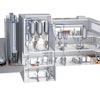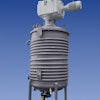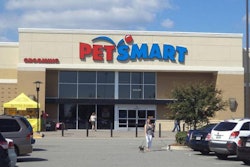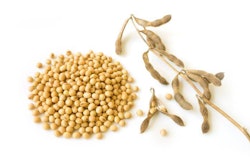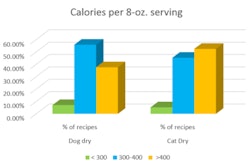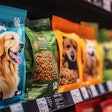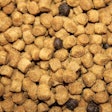
EDITOR'S NOTE: This article is the first in a series profiling academic opportunities for the pet food industry.
Educational institutions around the world offer classes and degree programs designed to prepare the next generation of pet food professionals or boost the knowledge of mid-career pros.
University of Illinois – Urbana-Champaign masters of animal science program
Starting this fall, a project-based master of animal science (MAS) program at the University of Illinois – Urbana-Champaign may be ideal for pet food professionals who need expertise, but have no plans to continue in academia or research.
“To our knowledge, our project-based MAS program is the first of its kind in the companion animal nutrition area,” Kelly Swanson, PhD, University of Illinois – Urbana-Champaign professor in the animal sciences department’s nutrition division, told Petfood Industry.
Department of Animal Sciences professors designed the coursework for people in the pet industry with no need to conduct research, but who do require expertise in nutrition, diet formulation and processing, regulations and related topics.
“There are a wide range of career options in academia, industry and government for traditional, thesis-based MS and PhD graduates in companion animal nutrition,” Swanson said.
“Our graduate program has consistently supplied MS and PhD scientists to these positions over the last three decades,” he said. “Our new MAS program is a great option for those targeting positions not requiring in-depth research experience. Therefore, graduates of the MAS program will have many of the same options as those with a thesis-based MS. Even though MAS students will not complete MS research and write a thesis, they will complete a capstone project that helps students understand the scientific method and develop science communication skills.”
Pet food education at University of Illinois – Urbana-Champaign
In 2010, the National Research Council ranked the University of Illinois Department of Animal Sciences as the top-ranked animal science department in the US, said Swanson. The Council determined this ranking by looking at external grant funding, number of peer-reviewed publications, faculty and graduate student honors and awards, graduation rates of our undergraduate and graduate students and similar metrics.
“Therefore, our students are trained in a highly competitive research environment from world leaders in several disciplines, including nutrition,” he said. “Our companion animal nutrition research laboratory, in particular, is well-funded by the federal government, private industry, and specialized non-profit organizations, exposing students to and training them in both basic and applied aspects of nutrition.
Over the past decade, Swanson and his colleagues have published more than 100 peer-reviewed papers related to companion animal nutrition and health. Topics covered by this research included:
- Ingredient evaluation and interactions
- Nutrient metabolism and utilization
- Gastrointestinal health and microbiome
- Nutritional genomics and immunology
- Therapeutic nutrition
- Pet food technology
Pet food coursework for graduate and undergraduate students
University of Illinois – Urbana-Champaign maintains a colony of healthy dogs and cats, Swanson said. The university has five laboratories dedicated to chemical analyses, genomic biology and in vitro digestion and fermentation assays. The animal science department uses equipment in the university’s biotechnology center for DNA sequencing and functional genomics, which is the study of how the genetic code translates into bodily processes, health and behaviors.
“In addition to being trained in biochemistry and nutrition, students receive training in molecular biology, statistics, and bioinformatics,” said Swanson. “These areas are increasingly important for explaining biological phenomena and handling ‘big data’.”
His department teaches approximately 10 courses on companion animal biology and humane education, to both undergraduates and students seeking advanced degrees. For example, students in the new MAS program take classes on advanced companion animal nutrition, pet food manufacturing and formulation.
Along with these aspects of the pet food industry, the MAS program includes hands-on experiences with animals, in laboratories, and in feed processing/production plants. Students also may attend weekly seminars and journal clubs and receive mentoring.
Pet food industry career education
Educational institutions around the world offer classes and degree programs designed to prepare the next generation of pet food professionals or boost the knowledge of mid-career pros. This article is part of a series profiling these academic opportunities leading to pet food industry careers.
Read more: Pet food nutrition: higher education for mid-career pros

